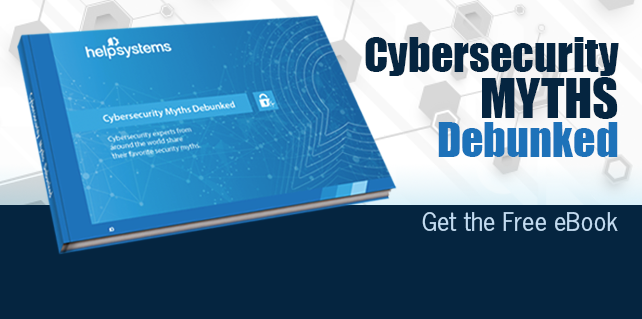Can you tell fact from fiction? You might be surprised. Six uniquely-qualified experts speak up about their favorite cybersecurity myths, and address why they’re wrong.
Despite living in a time of modern technology, cybersecurity professionals often act like warriors from a Greek mythology action movie. We spend years preparing for battle against the unknown creatures that plot our demise. They’ll come, we know they will—and when they do, we’ll be ready, covered in armor and armed with the tried-and-tested strategies of those who came before.
Just like our favorite heroes from Troy, Hercules, or [insert your favorite Greek action movie here. Is it Clash of the Titans? We won’t judge].
As we approach the fight, we study our enemies, think like our enemies, learn our enemies motives. DDoS attacks? They’re the mythical creature Hydra, using its heads to attack organizations from every direction. Phishing emails? Those are beautiful Sirens, with voices that can lure even the smartest user to an early financial grave.
How do we defend against these aggressions? Not with swords, of course, but with the suggestions of previous cybersecurity professionals. Most give sage advice—and you don’t even have to fight in an arena to prove yourself, imagine that!—but some are outdated, and their strategies could, unintentionally, weaken your cybersecurity practices.
But which practices are myths, and why? To clear them up once and for all, IT software provider HelpSystems asked six uniquely-qualified experts in the field, including Microsoft Regional Director Troy Hunt and Experian Vice President Michael Bruemmer, to address and debunk their favorite security myths.
Here’s what a few of them are saying:
“IT, management, and users still automatically assume that security is technical in nature and is being properly handled by IT staff. IT professionals perpetuate this by proclaiming that everything is in check when, looking behind the scenes, it’s really not.”
“It’s really interesting because we have this mix of opinions at the moment where most organizations say ‘you must rotate your password every 90 days in order to keep it secure’ and on the other side you have The National Cyber Security Centre of the British government and NIST saying ‘don’t do this because it makes it worse!’”
“Clearly, there’s a disconnect between consumer awareness and understanding, as the majority (62 percent) of respondents said the security of their personal information online was a ‘minor concern they worried about sometimes.’”
Ready to learn from the experts? Read their thoughts in this ebook: Cybersecurity Myths Debunked.


